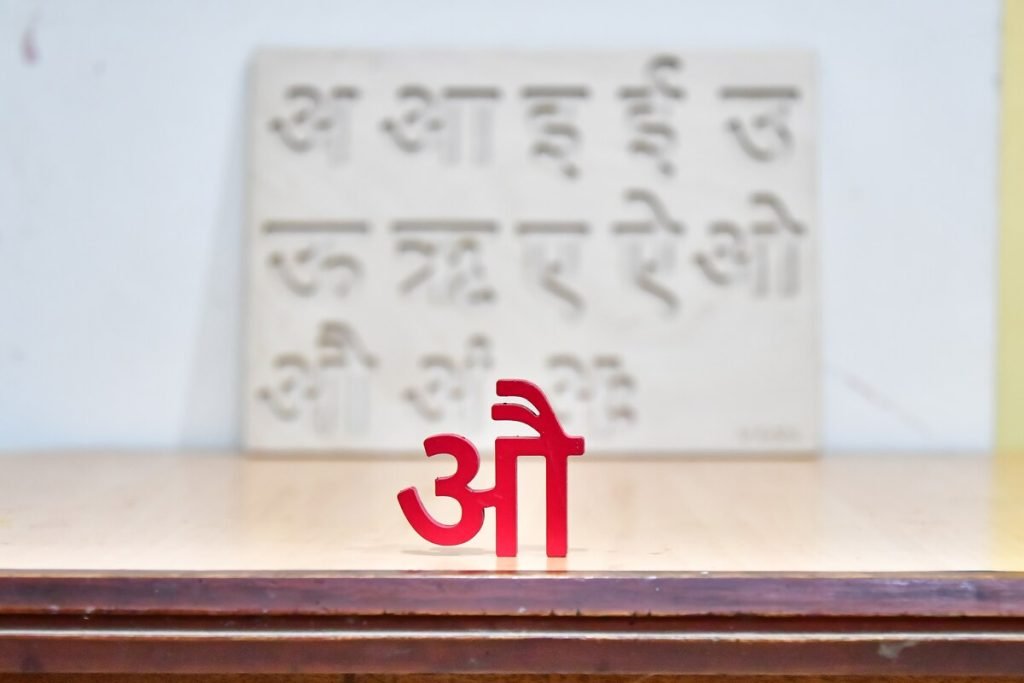Sanskrit, often referred to as the “language of the gods,” is one of the world’s oldest languages and has a rich literary tradition spanning thousands of years. Among the various forms of Sanskrit writing, “Mam Parichay” holds a special place. In this comprehensive guide, we will delve into the intricacies of writing “Mam Parichay” in Sanskrit.
Sanskrit Script and Pronunciation
Introduction to Sanskrit Script
Sanskrit is written in the Devanagari script, which is known for its beautiful and intricate characters. Learning the script is the first step towards writing in Sanskrit.
Pronunciation Guide for Beginners
Accurate pronunciation is crucial in Sanskrit. Understand the unique sounds and phonetics of Sanskrit to convey your message effectively.
Basic Sanskrit Grammar
Nouns and Gender
Sanskrit nouns are classified into three genders: masculine, feminine, and neuter. Learn how to identify and use them.
Verbs and Tenses
Discover the various verb forms and tenses in Sanskrit, essential for crafting meaningful sentences.
Sentence Structure
Understand the fundamental structure of Sanskrit sentences, including subject-object agreements and word order.
Writing Tools and Materials
Choosing the Right Writing Tools
Select the appropriate tools, such as pens, brushes, or styluses, to begin your Sanskrit writing journey.
Traditional Materials vs. Modern Options
Explore the choice between traditional materials like palm leaves and contemporary options like paper and digital mediums.
Getting Started with “Mam Parichay”
Defining “Mam Parichay”
Uncover the meaning and significance of “Mam Parichay” in the world of Sanskrit literature.
Its Significance in Sanskrit Literature
Learn how “Mam Parichay” is used in classical Sanskrit texts and modern compositions.
Writing the Title
Crafting an Eye-Catching Title in Sanskrit
Discover the art of creating attention-grabbing titles that set the tone for your “Mam Parichay.”
Tips for Making it Engaging
Use innovative techniques to make your title not only informative but also intriguing.
Structuring Your Introduction
Setting the Tone
Establish the mood and context of your “Mam Parichay” with a well-crafted introduction.
Providing Context
Help your readers understand the purpose and background of your introduction.
Main Body
Sanskrit as a Classical Language
Delve into the historical significance of Sanskrit as a classical language and its role in Indian culture.
Role of “Mam Parichay” in Ancient Texts
Explore how “Mam Parichay” has been used in ancient Sanskrit texts to introduce authors and poets.
Step-by-Step Guide to Writing “Mam Parichay”
Choosing the Subject
Select a compelling subject that resonates with your personality and aspirations.
Composing the Salutation
Craft an eloquent salutation that captures the essence of respect and reverence.
Describing Yourself
Paint a vivid picture of yourself, highlighting your identity and uniqueness.
Mentioning Your Qualifications
Share your educational and professional achievements to establish credibility.
Including Your Hobbies and Interests
Reveal your interests and passions to connect with your audience on a personal level.
Expressing Gratitude
Convey your gratitude towards your readers and mentors for their support and guidance.
Adding a Personal Touch
Using Metaphors and Similes
Enhance your “Mam Parichay” with metaphors and similes to create vivid imagery.
Incorporating Poetic Elements
Infuse poetic elements like alliteration and rhyme to make your introduction lyrical and memorable.
Making it Memorable
Employ storytelling techniques to leave a lasting impression on your readers.
Sanskrit Calligraphy
The Art of Beautiful Sanskrit Writing
Explore the aesthetics of Sanskrit calligraphy and its importance in presenting your “Mam Parichay.”
Tips for Improving Your Calligraphy Skills
Master the art of writing Sanskrit characters with grace and precision.
Proofreading and Editing
Ensuring Correct Grammar and Spelling
Avoid common grammatical errors and typos that can detract from the quality of your “Mam Parichay.”
Polishing Your “Mam Parichay” for Perfection
Refine your work through meticulous editing and revision.
Preserving Your Work
Traditional Manuscript Preservation
Learn about traditional methods for preserving Sanskrit manuscripts.
Digital Backups and Online Platforms
Discover modern approaches to safeguarding your “Mam Parichay” in the digital age.
Sharing Your “Mam Parichay”
Traditional Sanskrit Forums and Communities
Connect with Sanskrit enthusiasts and share your work on traditional platforms.
Social Media and Modern Platforms
Utilize the power of social media and online platforms to reach a wider audience and share your “Mam Parichay” with the world.
Tips for Continuous Improvement
Practicing Regularly
Dedicate time to regular practice to sharpen your Sanskrit writing skills and refine your “Mam Parichay.”
Seeking Feedback from Experts
Engage with experienced Sanskrit writers and scholars to receive constructive feedback and guidance.
Exploring Advanced Writing Styles
Expand your horizons by exploring advanced Sanskrit writing styles and techniques to add depth to your “Mam Parichay.”
Conclusion
In conclusion, writing “Mam Parichay” in Sanskrit is not just an art; it’s a profound expression of one’s identity and aspirations. This comprehensive guide has provided you with the tools and knowledge to embark on your Sanskrit writing journey. From understanding the Sanskrit script and grammar to crafting an engaging “Mam Parichay,” you now possess the essential skills to create a meaningful introduction to this ancient language.
Read Also: What exactly is Mindfulness?

